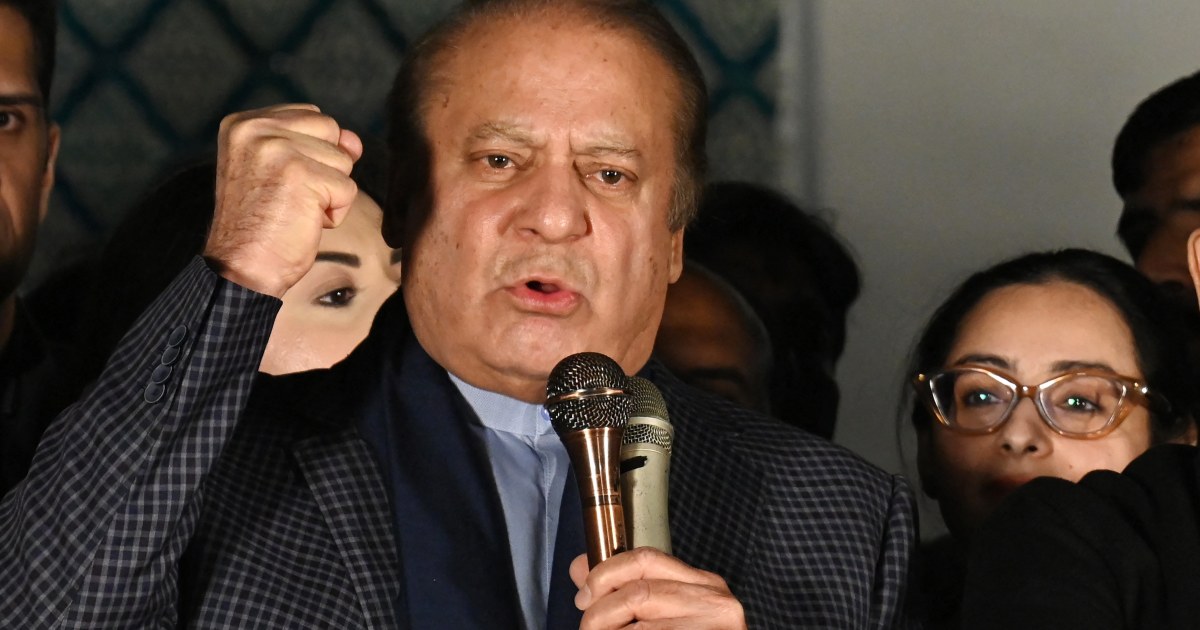
The former prime minister of Pakistan expected his party would claim an easy victory in the country’s parliamentary elections, sending him to the top job for a fourth time. Instead, Nawaz Sharif faces a difficult path to power.
Independent candidates backed by his imprisoned rival, Imran Khan, were leading in the vote count Friday, a surprisingly strong showing given assertions by Khan’s supporters and a national rights body that the balloting was manipulated to favor Sharif.
That scrambled the plans of Sharif — and the security establishment backing him — forcing him to announce plans Friday to try to form a coalition government.
A day earlier, Sharif had gruffly rejected the idea of a coalition, confidently telling reporters after casting his vote that he wanted a single party running Pakistan for a full five-year term.
Khan, a former cricket star turned Islamist politician with a significant grassroots following, was disqualified from running in Thursday’s election because of criminal convictions. He contends his sentences and a slew of legal cases pending against him were politically motivated.
Khan’s party’s candidates were forced to run as independents after they were barred from using the party symbol — a cricket bat — to help illiterate voters find them on ballots.
Despite those setbacks — and with most of the 266 National Assembly constituencies announced by the election oversight body — candidates backed by Khan’s Pakistan Tehreek-e-Insaf party, or PTI, had won 99 seats. Sharif’s Pakistan Muslim League party had 71 seats. The election was postponed in one constituency because of the killing of one of the candidates.
However, with a third major party in the mix, nobody could declare outright victory.
Sharif acknowledged that, telling supporters “we don’t have enough of a majority to form a government without the support of others and we invite allies to join the coalition so we can make joint efforts to pull Pakistan out of its problems.”
“We will have to sit together to settle all matters,” he said.
However, Pakistan’s deeply divided political climate is unlikely to produce a strong coalition pushing for the betterment of a country grappling with high inflation, year-round energy outages and militant attacks.
The lack of a majority did not stop Sharif’s relatives and loyalists from appearing on a balcony at his party headquarters, waving to the crowds below. People threw rose petals on Sharif’s car as he arrived to address party workers.
Meanwhile, PTI chairman Gohar Khan told Pakistani news channel Geo that his party’s own count showed it securing a total of 150 seats, enough to form a government, though 169 seats are required for a majority in the 336-seat National Assembly, or lower house of parliament.
Observers had expected Sharif’s Pakistan Muslim League to prevail and put him on track for a fourth term as prime minister due to the disadvantages faced by Khan’s party. Along with Khan imprisoned and facing more criminal convictions, election officials and police blocked his party from holding rallies and opening campaign offices, and its online events were blocked.






